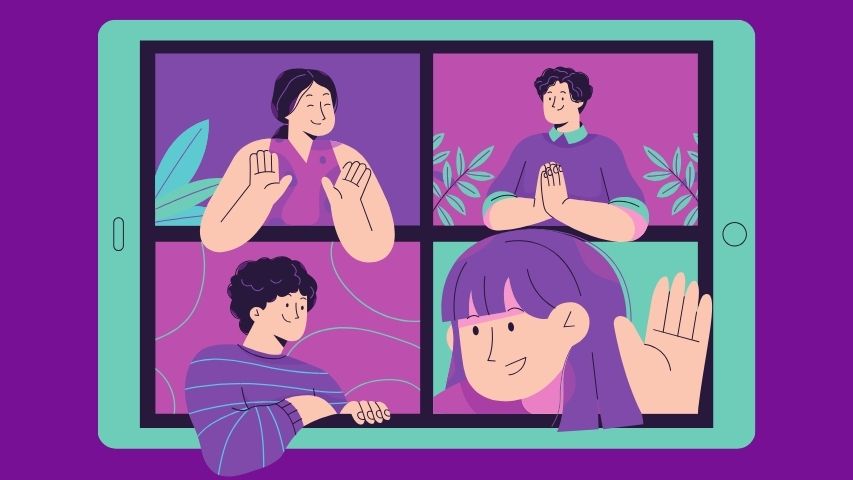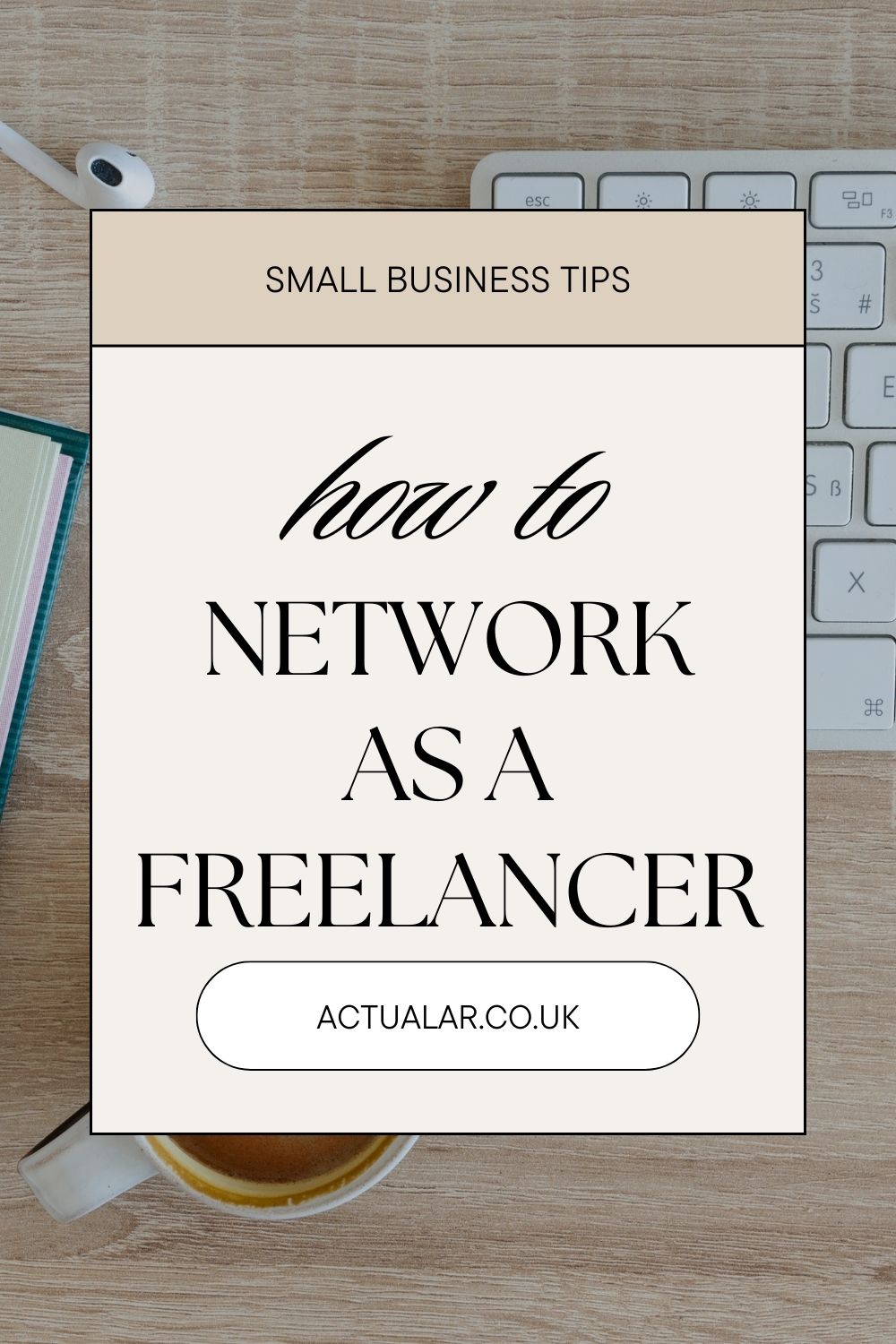Networking can be hard in most professions. As a freelancer, it’s often all the more difficult. You’re out there on your own, with only your portfolio and potentially a handful of clients to rely on. Still, networking is one of the most important ways for you to grow your business, especially if you’re self-employed. In this post, I’m going to be looking at some ideas for how to network as a freelancer.
One of the things I’ve learned over the years about networking is that it’s mainly a matter of perception. I used to be quite apprehensive of the idea of striking up a conversation to talk about my work. Over time, I’ve realised that actually, networking isn’t really about that. It’s about developing useful and meaningful connections with the right people.
It’s actually become a lot easier to network online nowadays. Thanks to the many online communities and professional platforms that exist, it’s no longer all about in-person events. They still do have a role to play, but there are plenty of digital spaces and events to take part in that’ll raise your professional credibility.
How to network as a freelancer
The most important thing to remember is that networking isn’t something you can just do occasionally. You need to put the time and regular effort in to see it actually pay off. Freelancing can be quite isolating if you don’t take the opportunity to develop relationships with others, so don’t avoid it.
Putting in the time and effort to build a helpful professional network as a freelancer can be tricky. However, with these tips, you’ll be off to a strong start. Here are some things to think about if you’re wondering how to network as a freelancer.
Proactiveness and consistency
The key to building a network as a freelancer is to be proactive and consistent. When you work for yourself, it’s down to you to establish and maintain meaningful connections with others. That means finding new contacts to reach out to and keep in touch with. Always think about the nature of the connections you make too. As a freelancer, your reputation is incredibly important. For that reason, you shouldn’t treat networking as a purely transactional activity.
Keep in touch with the contacts you make. Treat them as you’d like to be treated. Invest time in those relationships and be consistent with your presence. That’s not to say you should constantly bother people, but don’t only reach out when you want something. Not only is that really transparent behaviour, but it’s also quite unprofessional.
Use LinkedIn to regularly check in with your network. Add your genuine thoughts and comments to the posts your contacts make. Don’t just post your own content and fail to engage with others. If you need to, set reminders or weekly targets to keep your networking efforts regular and considered.
Think about what you can offer others

As with the first point, networking shouldn’t be about what you can get out of it. As a freelancer, you might feel a little more isolated when it comes to what you have to offer. That’s not the case though. You want to share your thoughts and knowledge with others as genuinely as you can.
If you’ve made a connection with someone, then they’re interested in your value. Your thoughts and ideas can have an impact, so consider how you can help other people with them.
By being generous with your efforts, you can provide support and advice to your contacts. In turn, they’ll develop trust in you and this will help to further cement a positive professional relationship.
Things you can offer to your connections could be advice, giving feedback, sharing resources or other contacts, for example. Consider what you have to offer others, and be generous with your time. It’ll help build a positive reputation for you in the longer term.
Share your expertise
Networking is about finding new ways to demonstrate your expertise and skills. This doesn’t need to be so direct as telling someone about what you can do. Instead, use your knowledge and expertise thoughtfully, by adding suggestions or providing answers to your contacts’ questions.
Take the time to develop quality blog posts about your subject knowledge and share these on LinkedIn or another social platform where your connections are. Develop a portfolio of work and make sure you point others towards it fairly regularly. Don’t be afraid to remind people how you can help them from time to time.
Use your expertise to position yourself as someone confident and reliable. You want to demonstrate your knowledge, talent, skill and professionalism for others to become interested in.
If you wanted to develop that presence even further, you could find ways to start speaking at events. This would demonstrate your expertise in a really tangible way and lead to some new and potentially exciting connections.
Be yourself
When sharing your expertise, don’t neglect your personality in the process. Remember that it’s important to be yourself, especially when building your network. People are interested in people. Whilst you want to remain professional, this doesn’t mean that you should hold down any traces of personality!
Show people your passion, your creativity, your sense of humour. Obviously, don’t overstep into unprofessional territory. However, there’s no harm whatsoever in being authentic and honest when trying to build your network as a freelancer.
Be visible at events

Making an appearance at events in your industry can be a brilliant way to network with new people. You’ll have the chance to meet others who share your professional interests and potentially make useful contacts.
Whether these events are in-person or online, they can really help to put you on the radar. Check out what’s happening in your industry locally or online using LinkedIn, Eventbrite, Discord and even Facebook. Sometimes, the best way to make new connections is just to throw yourself into an event and say hi to someone else.
Find relevant online spaces and communities
Alongside attending events, a large part of developing and maintaining a network of connections is finding the right online spaces. Finding online communities is a crucial part of developing meaningful connections and establishing your identity as a freelancer.
Whatever niche you’re operating in, whether you’re a writer, designer, online tutor, artist, or anything else, finding your community is vital.
You’ll want to find people who have similar career goals, skills, and professional interests. Don’t view other freelancers as your competitors. Working together with others can pay off, as you’ll be able to help each other find the right opportunities. Besides, it’s important to have that sense of community when you need to share ideas, let off some steam or ask for help.
Explore Discord, Reddit, Medium and LinkedIn to find relevant online spaces, groups and communities that can help you with your networking.
Other ideas for how to network as a freelancer
Networking can be a challenge, but remember that at the end of the day, we’re all just people. If you think about it, the idea of making new friends is always a lot harder than just doing it. If you approach others with generosity and genuine intentions, then you might be surprised at how much easier networking feels.
Maintaining the connections you make is equally, if not more important than reaching out in the first place. Put the time and effort in with the people you connect with. Send an email to see how they’re doing, or shoot a message every now and then to ask how their project is coming along. Show an interest, be a human.
I’d love to hear from you if you have any other ideas about how to network as a freelancer. Let me know in the comments if you’ve got any tips or advice. If you’ve found this post useful, please do give it a share. You might also enjoy my boards on freelancing on Pinterest, as well as this post on building your portfolio.




